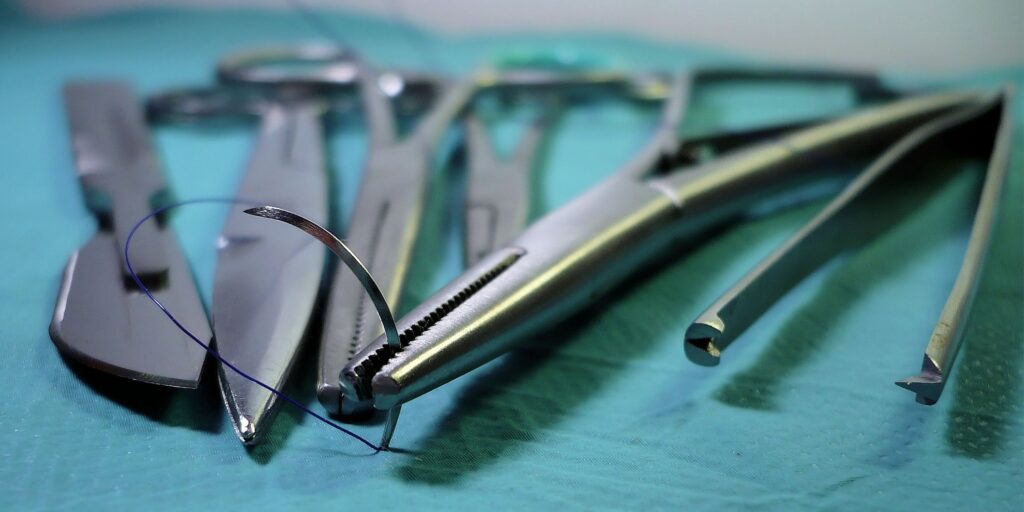
Most PA students would agree that surgery is definitely the most daunting rotation in PA school. The operating room can feel like a whole other planet to someone who has never set foot in one before, and to add on that you are running around the hospital for rounds, running to clinic, and trying to document progress notes and don’t forget to learn as much as you can while doing all of that. Don’t worry though, preparation is the key to succeeding on your surgery rotation and I am going to tell you exactly how to do that.
Step 1: Figure out time and place. Unlike in outpatient rotations, location can be a little bit of a grey area. Obviously you are going to be at the hospital, but figure out what floor and what time the team meets for rounds. On my rotation I was required to get there before the team so that I could prep for rounds, which meant getting to the hospital at 5:30am! Also figure out where to get hospital scrubs because you are likely to go from rounds to OR, and as a student on a surgical team you need to be prepared for anything. Send an email to your preceptor a week prior to your start date and ask them for specifics on time and place. Some hospitals may require orientation so be sure to ask your clinical director if that is something you need to do.
Step 2: Look for students in your class that have already had your rotation and ask them to give you the run down. Some surgeons expect specific things from students and it makes it a million times easier if you know these things ahead of time. For example, before morning rounds the students on my rotation were expected to get the floor and prepare for rounds by recording vitals, labs, imaging on the patient list and wake the patients up to ask them a few questions. I was not told this was required of me by my preceptor, but by the students who were there before me. So always ask and don’t be afraid to ask too many questions!
Step 3: Study the surgery cases beforehand! Find out what the most common surgeries you will be seeing on your rotation are by asking your preceptor or classmates. Take time to research just the basics of the cases including purpose, complications, and anatomy. It can be hard to find specifics, but Youtube and google can provide at least the basics.
Step 4: Suture, suture, suture! The most involved I got in the OR on my rotation was being able to close the incisions. It is important to have basic suturing technique down before your first day of your surgery rotation. If you can, ask the classmates before you what type of sutures the surgeon prefers. On my rotation the preferred method was running subcuticular. Even if you don’t have that information just having a basic understanding of suture technique will help you tremendously in the OR. Youtube is your bestfriend in this situation, there are multiple tutorials by surgeons themselves so spend a little bit of time on there before you start your rotation.
Step 5: Get to know OR culture! The OR can be a high stress environment, patients are at their most vulnerable and it is important that healthcare staff stays on high alert to keep patients safe. It is important to know where you stand in the OR. As a student you are not required personnel and Scrub techs, nurses, or surgeons can ask you to leave if you are at risk of contaminating the sterile field or are a distraction in any way. When you get to the OR introduce yourself to the other staff there, offer to help prep the patient, let them know if you are scrubbing in and go ahead and grab your PPE (sterile gloves and gown). Never drop anything on the sterile field without permission and stay away from anything blue if you are not scrubbed in! Speaking of scrubbing in, research and practice that as well. My school provided us with some sterile gloves to practice sterile technique, but if you don’t have any use paper and normal gloves to at least practice opening the package and putting the gloves on using sterile technique. Again Youtube is your friend here, and there are some great videos that show you how to scrub in from start to finish. There can be some strong personalities in the OR, just be kind, respectful, and helpful to stay on everyone’s good side!
Step 6: Give yourself grace! With all of the logistics out of the way I wanted to take a moment to tell you that it is okay to not know things, and its okay to be new, and you are going to do great! I remember being so nervous the night before starting my surgery rotation. Did things go wrong? yes! Did my preceptor ask me a lot of questions that I didn’t know? yes! Did I get lost in the hospital on my first day? Yes! Things are going to happen and it is okay, take a deep breath, ask for help and say I don’t know I will have to do some more research on that when you don’t know the answer to a question. Also, have fun! I really enjoyed my surgery rotation despite the 80hr work week and 4:00am alarms. It is a great team environment and it so amazing watching patients recover!
Thanks for reading and I wish you lots of learning on your surgery rotation!